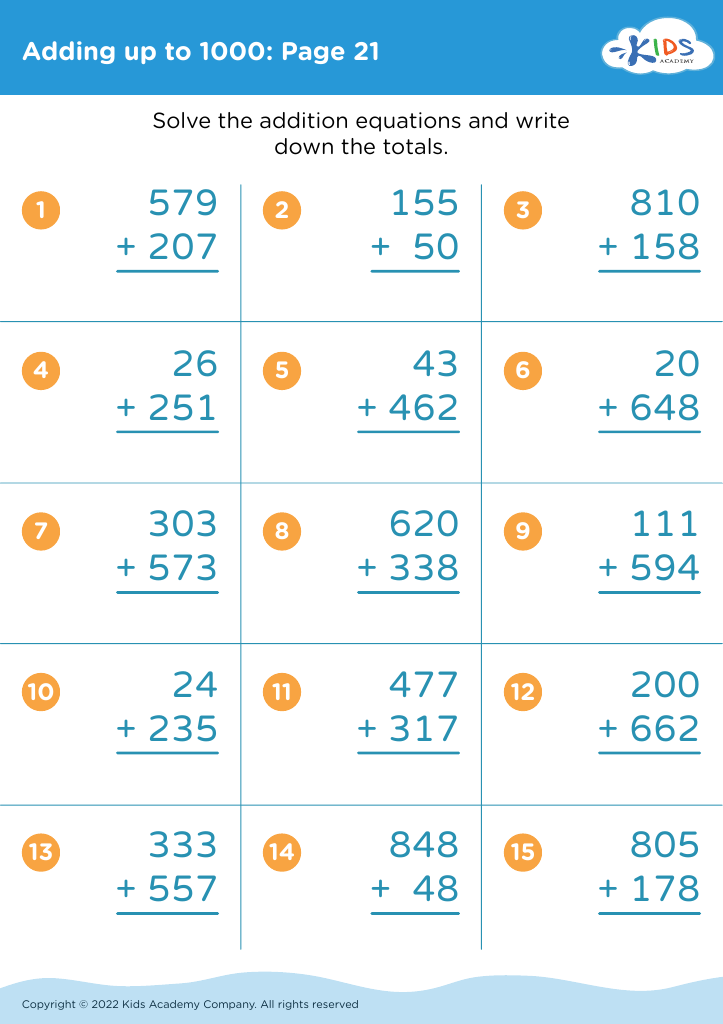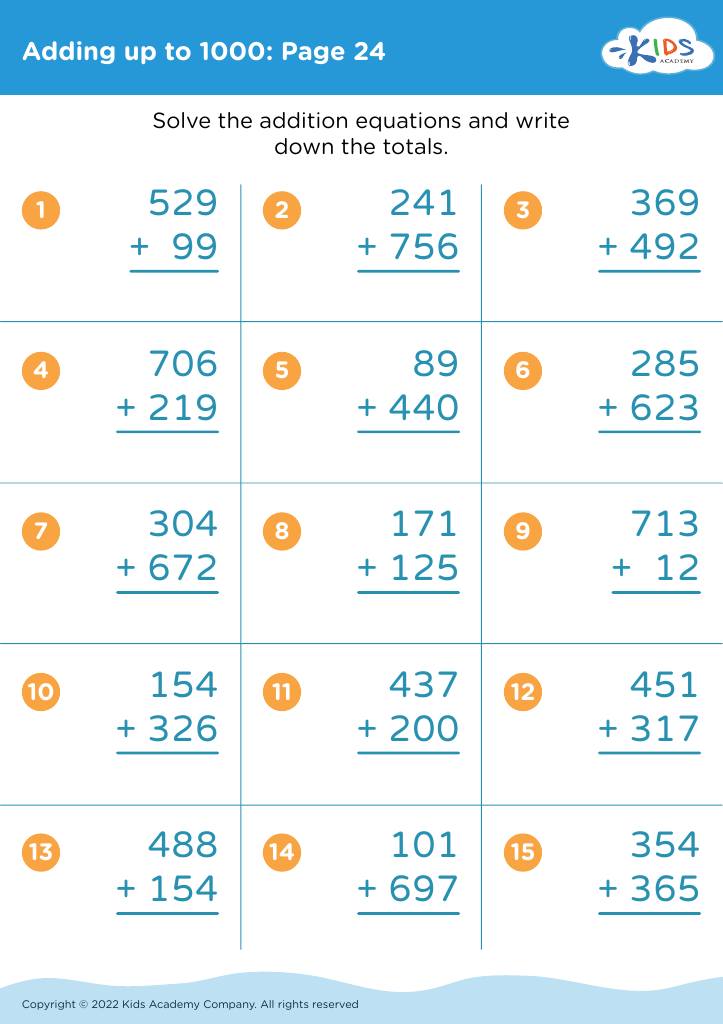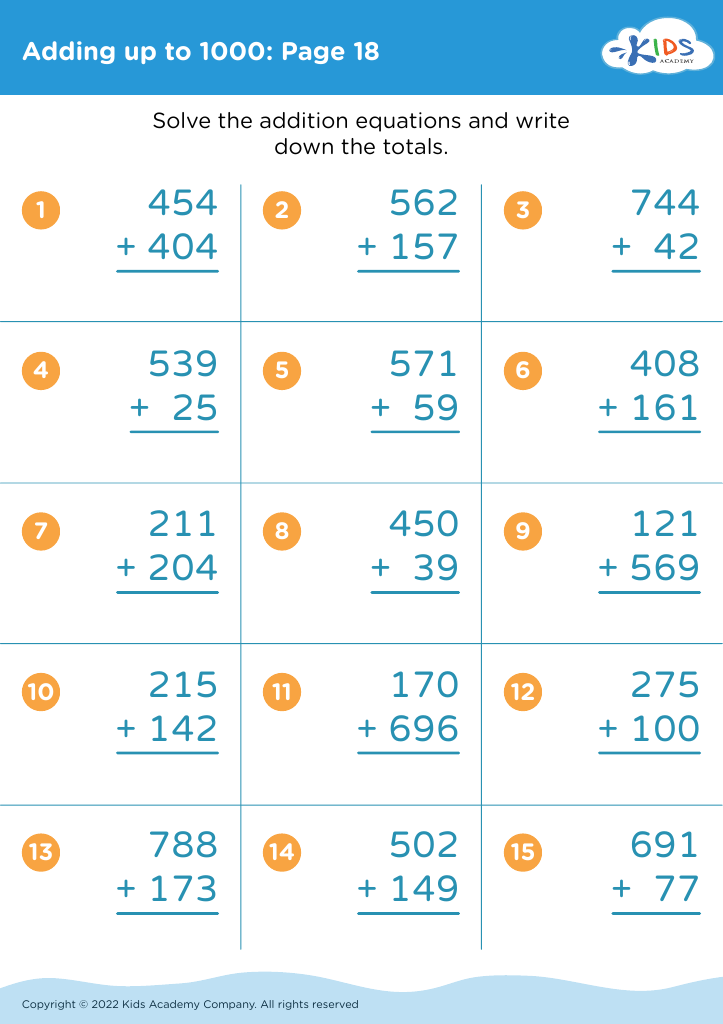Fine Motor Skills Adding up to 1000 Misc Worksheets for Ages 6-9
5 filtered results
-
From - To
Discover our extensive collection of Fine Motor Skills worksheets designed for children aged 6-9! With over 1000 engaging and interactive worksheets, kids can enhance their fine motor skills while having fun. These resources focus on vital skills such as hand-eye coordination, dexterity, and control—all critical for mastering mathematical concepts. Our worksheets feature a variety of activities, including tracing, coloring, and cutting, allowing young learners to develop their skills in a creative context. Help your child gain confidence in their abilities while they practice addition mixed with fine motor skill exercises, setting the foundation for a lifelong love of learning and math!
Fine motor skills are crucial for children aged 6-9 as they significantly impact their overall development and daily activities. During these formative years, children are refining their ability to control small muscles in their hands and fingers, which enhances their ability to write, draw, and perform tasks like buttoning shirts or tying shoelaces. Parents and teachers should care about fostering these skills, as they are foundational for academic success and independence.
Developing fine motor skills can boost a child's confidence and motivation when it comes to tasks that require precision. Proficient fine motor control aids in writing neatly and completing classroom assignments efficiently, which is essential for building a solid educational foundation. Moreover, engaging in activities that enhance fine motor skills—such as arts and crafts, puzzles, and manipulative games—can also promote cognitive development and creativity.
Furthermore, strong fine motor skills are linked to self-regulation and concentration. Activities that engage these skills encourage focus, patience, and persistence, traits that are valuable throughout life. Overall, by prioritizing fine motor development, parents and educators can foster a love for learning and equip children with essential skills necessary for everyday tasks and future challenges.















